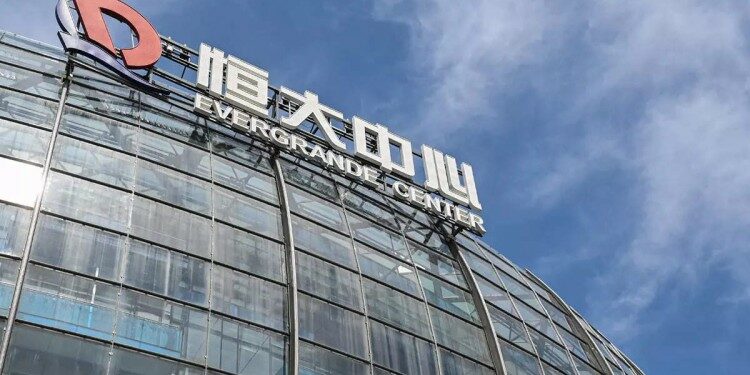In news– Evergrande Group, a Chinese real estate conglomerate, has been in the news due to its inability to pay interest on its massive debt obligations.
About Evergrande crisis
- The company recently defaulted on interest payment and is set to miss more deadlines.
- Many fear that the company is insolvent, and its share price has dropped over 80% in the last one year and hit a 10-year low.
- This group is China’s second-largest real estate company in terms of total sales and employs over 200,000 employees.
- Its core business deals with buying large amounts of land, developing them into houses, restaurants and so on and selling them to interested buyers.
- The company uses large amounts of debt from banks and investors as well as short-term loans extended by suppliers and property buyers to fund its business.
Reasons of the crisis
Chinese government’s new rules for property developers
- In August 2020, the Chinese government came up with rules (also called the ‘three red lines’) stating how much a property developer can borrow given its financial position as measured by three debt metrics.
- The new rules practically cut off Evergrande from taking on any more debt on its balance sheet.
- This was a big hit to Evergrande’s business as it engaged in heavy borrowing to run its business.
- The company was thus forced to sell its land and other properties at steep discounts to meet its debt obligations.
- This fire sale of assets eventually led to Evergrande’s insolvency.
Government’s bid to puncture property bubble
- The Chinese government’s new rules as a bid to puncture the country’s property bubble and bring about a ‘soft landing’ of the economy might have led to this crisis.
- Chinese authorities have traditionally encouraged businesses to take on huge amounts of debt through the heavily state-controlled financial sector to develop new properties. This led to the indiscriminate development of properties, so much so that almost a third of the Chinese GDP is made up of the property sector. Millions of properties with very little demand from buyers have been seen in Chinese ‘ghost cities’.
- Over the years, Chinese authorities have also tacitly supported the property bubble by bailing out troubled developers.
- It is said that the Chinese authorities now want the country’s resources to be allocated towards other sectors such as technology and have thus decided to withdraw their support for property developers.
- The Chinese government has in recent years let various business entities with exposure to the property sector go bust instead of bailing them out of trouble.
Long time crisis of the group
- Other analysts, however, believe that the current crisis was a long time coming.
- They argue that the company’s business model has been unsustainable for a long time.
- It was said that the company held properties that it could not sell on its balance sheet as inventory, thus avoiding the booking of losses.
- The company was also accused of running a ponzi scheme as it relied on the constant inflow of funds to prop up a business model that is fundamentally unsustainable.
Impact of the crisis
- Many have called the Evergrande crisis China’s own ‘Lehman moment’, alluding to the failure of U.S. bank Lehman Brothers, which precipitated the 2008 financial crisis.
- foreign investors with direct exposure to Evergrande or to companies that are financially linked to Evergrande may experience losses.
- Any slowdown in the Chinese economy as the country tries to rebalance its economy away from the property sector will have effects on the global supply chain.
- Metal stocks in India, for instance, have witnessed a sharp correction, and the move was attributed to fears of a slump in Chinese demand.
- Some analysts, in fact, believe that Chinese growth could drop to as low 1-2% as the country massively rebalances its economy.
















